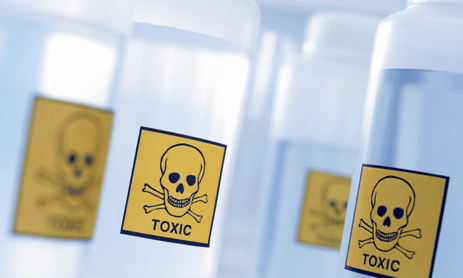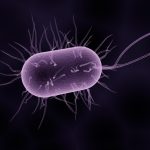A powerful new report has revealed a disturbing connection between everyday chemical exposure and a surge in major health crises, including cancer, infertility, dementia and obesity.
Researchers are sounding the alarm over what they describe as “the most underrated threat facing humanity”, the toxic contamination of our food, air and water. The report warns that this environmental poisoning is not only widespread but also dangerously underestimated in its impact on human health and the planet.
“The contamination of humans is endemic,” the report cautions, calling the current state of chemical management across the globe “inadequate” and “misunderstood.”
Hidden Hazards in Everyday Life
More than 3,600 synthetic chemicals used in food packaging and agriculture, including pesticides, are now detectable in human bodies across the globe, the study found. Alarmingly, 80 of these substances have been identified as potentially high-risk to human health.
Perfluoroalkyl and Polyfluoroalkyl Substances (PFAS), often dubbed ‘forever chemicals’, were found in almost every individual tested. In Europe, 14% of teenagers already have PFAS levels in their blood that pose serious health concerns.
Some of the most shocking revelations include:
- Clear links between pesticide exposure and cancers such as leukaemia, non-Hodgkin’s lymphoma, and cancers of the bladder, liver, and colon.
- Prenatal exposure to pesticides may increase the risk of childhood leukaemia and lymphoma by over 50%.
- Men with elevated levels of certain PFAS were shown to have less than half the normal sperm count.
These revelations come as fertility rates fall and cancer rates rise globally, painting a grim picture of how synthetic pollutants may be silently fuelling a public health crisis.
A major new study warns that toxic chemicals from everyday sources are silently fuelling serious health issues, including cancer, infertility, Alzheimer’s and obesity, posing a danger as significant as smoking.
A Global Chemical Overload
The report, titled ‘The Invisible Tsunami’, was produced by Deep Science Ventures in partnership with The Grantham Foundation for the Protection of the Environment. Their eight-month investigation reviewed peer-reviewed scientific literature and included interviews with academics, NGOs and environmental investors.
According to their findings, industrial activity has created more than 100 million new chemicals, with 350,000 currently in commercial use. The production of these chemicals has increased 50-fold since the 1950s. Many originate from fossil carbon feedstocks the base materials extracted from fossil fuels.
Persistent chemicals, such as PFAS, do not degrade easily and have now permeated every corner of the planet. PFAS, in particular, have been detected in rainwater at levels often exceeding safe drinking water thresholds, and in the bloodstream of nearly the entire global population.
Even non-persistent pollutants, those that do break down, are proving equally concerning. The World Health Organization estimates that 99% of the world’s population breathes air that contains pollution well above safe limits.
A Cascade of Health and Environmental Effects
The report documents “strong” causal and correlational evidence linking toxic chemical exposure to:
- Cancer and tumour development
- Obesity and metabolic disorders
- Alzheimer’s and cognitive decline
- Fertility issues and pregnancy complications
- ADHD and developmental delays in children
- Cardiovascular and respiratory diseases
In addition to its toll on human health, the report highlights the destruction of natural ecosystems, with toxins causing significant damage to biodiversity and ecological balance.
Dr Adam Tomassi-Russell, director of climate at Deep Science Ventures, stressed: “This research, collating peer-reviewed work, shows that humanity is facing a widely underappreciated exposure to chemicals through food, air and water.”
He added that a global rethink is urgently required: “The scale of the problem appears widespread and research shows the need for a fundamental shift in how we approach our understanding, funding and innovation efforts to solve this problem.”
Jeremy Grantham, co-founder and chair of The Grantham Foundation, echoed the call for urgent action: “Toxicity is the most underrated threat facing humanity.”
Call for Coordinated Global Response
The report concludes with a call for stronger international cooperation, clearer regulation, and better standardisation of chemical usage and safety protocols. Without drastic intervention, the study warns, both planetary health and future generations remain at serious risk.
As the effects of toxicity become harder to ignore, experts hope this report serves as a wake-up call for policymakers, industries, and the public alike.






